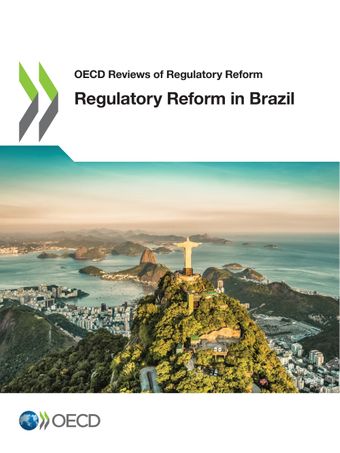Brazil

Regulatory Reform in Brazil
Removing unnecessary barriers to competition through targeted reforms can foster productivity
and economic growth. This Regulatory Reform Review of Brazil analyses sectors that
create barriers to competition, such as regulations that create obstacles to the entry
of firms, inhibit the entry of firms, or restrict activities in professional and network
sectors. In a complementary way, the review also identifies government efforts to
develop policies and tools to improve the quality of regulations, such as ex ante
assessment of draft regulations, stakeholder engagement in rule making, and administrative
simplification. High-quality regulations can stimulate productivity by encouraging
the efficient allocation of resources and promoting innovation. In turn, these measures
can reduce prices for consumers, stimulate the creation of jobs, and help improve
living standards. The review identifies areas for reform to bring the country’s regulations
and institutional arrangements more in line with international best practices. It
demonstrates how a proportional, clear, and efficient regulatory framework can drive
improvements in Brazil’s economic performance and the welfare of its citizens.
Published on June 21, 2022Also available in: Portuguese
In series:OECD Reviews of Regulatory Reformview more titles
TABLE OF CONTENTS
| Foreword | |||||||||||
| Abbreviations and acronyms | |||||||||||
| Executive summary | |||||||||||
|
Regulatory Policy and governance in Brazil5 chapters available
|
|||||||||||
Powered by OECD iLibrary